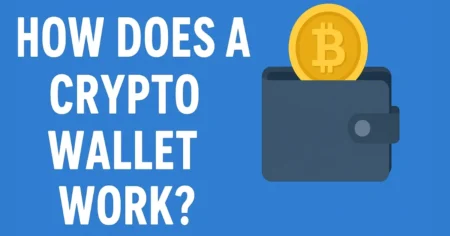Introduction to Cryptocurrency Regulations
What Are Cryptocurrency Regulations?
Cryptocurrency regulations refer to the laws, rules, and guidelines that govern the use, trading, taxation, and development of digital currencies. These rules are enforced by governmental bodies, financial authorities, and regulatory agencies in different parts of the world. The primary aim is to establish a legal framework for how cryptocurrencies operate within an economy—ensuring transparency, preventing fraud, safeguarding investors, and maintaining the stability of the broader financial system.
Initially, when Bitcoin and other cryptocurrencies emerged, they were touted as decentralized and free from governmental control. This notion led to a regulatory vacuum, as governments didn’t know how to classify them. Were they commodities? Securities? Currency? Assets? Each jurisdiction attempted to define them based on its financial principles, resulting in a globally fragmented approach. Over time, however, it became clear that digital assets were more than just a fad—they were genuine financial instruments with tangible consequences in the real world.
From banning crypto entirely to embracing it through licensing, countries have responded differently. But at the heart of every regulation lies a central question: How can governments protect their citizens while fostering innovation? This tightrope walk is what defines modern crypto regulatory policy.
Why Regulations Are Crucial in the Crypto Space
Think of the cryptocurrency world as the digital version of the Wild West. There are opportunities, pioneers, and fortune seekers—but also scams, frauds, and lawlessness. Regulations act as the sheriff in town. They bring structure to chaos. Without regulations, we’re left with risky ICOs, rug pulls, Ponzi schemes, and volatile markets that could damage the trust of both investors and institutional players.
Regulations serve several key purposes:
- Investor Protection: Retail investors, often lured by promises of high returns, need safeguards. Regulations ensure transparency in project development and token distribution.
- Preventing Illicit Activities: Cryptocurrencies, due to their pseudonymous nature, can be used for money laundering, terrorism financing, and other illegal operations. Regulatory compliance, such as AML and KYC, helps prevent these.
- Market Stability: A regulated environment discourages pump-and-dump schemes and price manipulations, ensuring healthier market dynamics.
- Innovation with Accountability: Contrary to popular belief, regulations don’t always stifle innovation. Clear rules attract more serious businesses and institutional investments, fostering long-term growth.
In a world where crypto adoption is surging—be it through Bitcoin ETFs, NFT marketplaces, or DeFi protocols—regulatory clarity has become not just helpful, but essential.
The Evolution of Crypto Regulations
The Early Days: A Wild West of Finance
Rewind a decade, and you’ll find that cryptocurrencies were largely ignored by regulators. Bitcoin was seen as a niche technology project or a rebellious economic experiment. Most government agencies didn’t take it seriously—until Silk Road came along. The infamous dark web marketplace used Bitcoin for anonymous transactions, grabbing global attention and making it clear that digital currencies had real-world implications.
This period from 2009 to 2013 saw minimal oversight. Startups launched ICOs with no legal backing. Exchanges operated without licenses. Hackers looted wallets, and scams flourished. The Mt. Gox collapse in 2014, where over 800,000 bitcoins went missing, was a wake-up call. It showed that without regulation, the entire ecosystem was at risk.
Slowly, regulators began to step in:
- 2013: The U.S. FinCEN declared that exchanges must register as money services businesses.
- 2015: The New York BitLicense introduced crypto-specific rules for firms operating in the state.
- 2017: The ICO boom prompted a global crackdown, with the SEC labeling many as unregistered securities.
These early moves laid the foundation for what would become an intricate global web of crypto regulation.
Global Events That Prompted Regulatory Changes
Cryptocurrencies didn’t exist in a vacuum. Their rise was shaped by events and forces that forced governments to act.
- ICO Mania (2017-2018): Startups raised billions with little more than whitepapers and promises. Many were scams. This prompted agencies like the SEC to start suing companies and setting legal precedents.
- Crypto Hacks and Thefts: Massive exchange hacks, such as Coincheck (Japan, $500M stolen), forced regulators to implement strict security and custodial requirements.
- Facebook’s Libra Announcement (2019): Libra (now Diem) scared central banks. If a tech giant could create its global currency, it could challenge sovereign monetary policy. This spurred discussions on Central Bank Digital Currencies (CBDCs).
- NFT and DeFi Booms (2020–2021): New sectors of the crypto economy like non-fungible tokens and decentralized finance emerged, prompting debates over how to regulate products that lack intermediaries or central control.
- FTX Collapse (2022): When one of the world’s largest crypto exchanges imploded due to alleged fraud and mismanagement, it underscored the urgent need for better oversight—even in high-profile crypto firms.
Each of these events forced regulators to rethink their approach. From being reactive to proactive, agencies worldwide are now racing to keep pace with this fast-evolving landscape.
Major Regulatory Bodies Involved
SEC (U.S. Securities and Exchange Commission)
The SEC is arguably the most influential regulatory body in the crypto space. Why? Because it determines whether a crypto asset is a security. If it is, then it must follow the same rules as stocks and bonds—registration, disclosures, audits, and investor protection.
Chair Gary Gensler has made it clear: many tokens are securities under the Howey Test, a legal benchmark from 1946. This test evaluates whether an investment contract exists. If people invest money expecting profits from the efforts of others, it qualifies. Under this logic, many ICOs and DeFi tokens fall under the SEC’s watch.
The SEC’s major actions include:
- Suing Ripple Labs over XRP, alleging it’s an unregistered security.
- Taking legal action against exchanges like Coinbase for listing unregistered securities.
- Blocking Bitcoin ETFs for years, only recently allowing spot ETFs under strict guidelines.
The SEC’s stance creates uncertainty, but also helps define legal boundaries in the U.S. crypto industry.
CFTC, FinCEN, IRS, and Other U.S. Agencies
The U.S. crypto space is overseen by a patchwork of agencies:
- CFTC (Commodity Futures Trading Commission): Treats Bitcoin and Ethereum as commodities. Regulates futures and derivatives.
- FinCEN (Financial Crimes Enforcement Network): Focuses on AML and KYC compliance. Requires exchanges to report suspicious activity.
- IRS (Internal Revenue Service): Treats cryptocurrencies as property for tax purposes. Users must report gains, even for crypto-to-crypto trades.
The lack of one clear agency has confused. One token could be a security, commodity, or property—depending on who’s asking. This fragmented approach makes compliance tricky for crypto businesses operating in the U.S.
Regional Approaches to Crypto Regulations
United States – Patchwork of Federal and State Laws
The United States has one of the most complex regulatory frameworks for cryptocurrencies. Instead of a unified approach, the U.S. relies on a combination of federal agencies and state-specific laws, which creates both opportunities and significant confusion for businesses and investors.
At the federal level, the SEC, CFTC, FinCEN, IRS, and OCC (Office of the Comptroller of the Currency) all play distinct roles. Each agency defines crypto assets differently, which complicates compliance. For instance, while the SEC might consider a token a security, the CFTC may view it as a commodity. Meanwhile, the IRS treats it as property for tax purposes.
At the state level, things get even more fragmented. New York, for example, requires companies to obtain a BitLicense to operate. This license has rigorous requirements, leading many crypto businesses to avoid New York altogether. Meanwhile, states like Wyoming and Texas have taken a more pro-crypto stance, passing laws that favor blockchain development and innovation.
This patchwork system leads to three main challenges:
- Compliance Burden: Crypto startups must often hire legal teams just to navigate regulatory obligations across different states and federal agencies.
- Innovation Bottleneck: Smaller players may be discouraged from launching in the U.S. due to regulatory uncertainty.
- Investor Confusion: With overlapping and conflicting messages from regulators, investors find it hard to know what’s legally safe.
Despite these challenges, the U.S. remains a major hub for blockchain development, largely because of its vast capital markets and tech talent. A potential future solution is comprehensive legislation like the Lummis-Gillibrand bill, which aims to provide clear guidelines for digital assets.
European Union – MiCA and GDPR Considerations
The European Union (EU) has taken a more unified and forward-thinking approach to crypto regulation, thanks in large part to the introduction of MiCA (Markets in Crypto-Assets Regulation). Set to go fully into effect by 2025, MiCA aims to create a single regulatory framework for all 27 EU member states.
Here’s what MiCA includes:
- Legal Classification of Tokens: MiCA categorizes digital assets as utility tokens, asset-referenced tokens (like stablecoins), or e-money tokens.
- Licensing Framework: Crypto-asset service providers (CASPs) must be licensed to operate across the EU.
- Consumer Protections: Enhanced rules around whitepapers, disclosure, and marketing to ensure investor safety.
- Stablecoin Oversight: Issuers of asset-backed stablecoins must maintain sufficient reserves and adhere to operational requirements.
MiCA’s main advantage is clarity. Companies know what’s expected, which fosters innovation. However, it’s also strict—especially for startups that may lack the resources to comply with rigorous licensing procedures.
In addition to MiCA, the General Data Protection Regulation (GDPR) adds another layer. Because blockchains are immutable, storing personal data can violate GDPR principles, such as the right to be forgotten. This has led to debates on whether public blockchains are GDPR-compliant and how privacy can be maintained without violating EU law.
Asia – A Mix of Restriction and Innovation (China, Japan, India)
Asia offers a diverse regulatory landscape, from total bans to full embrace:
- China: Once the global hub for Bitcoin mining and crypto activity, China has now banned all crypto transactions and mining. The government’s concern is losing control over monetary policy and capital flight. Instead, China has launched its own CBDC, the digital yuan.
- Japan: On the opposite end, Japan has embraced crypto by creating clear licensing requirements for exchanges. After the Coincheck hack, Japan’s Financial Services Agency (FSA) tightened security standards and mandated cold wallet storage. Japan also recognizes Bitcoin and some altcoins as legal property under the Payment Services Act.
- India: India has taken a more ambiguous path. While not outright banning crypto, the government has imposed a 30% tax on crypto gains and a 1% TDS (Tax Deducted at Source) on every transaction, which has significantly impacted trading volume. The Reserve Bank of India has expressed concerns about crypto’s impact on financial stability, but legislation is still under debate.
These diverse approaches highlight a global inconsistency. A trader in Japan may enjoy protections and tax incentives, while one in China faces jail time for the same activity. This creates challenges for international businesses and underscores the need for global coordination.
Key Areas of Regulation
AML (Anti-Money Laundering) and KYC (Know Your Customer)
Two of the most critical components of crypto regulation are AML (Anti-Money Laundering) and KYC (Know Your Customer) protocols. These are mandatory processes designed to prevent criminal activities such as money laundering, terrorism financing, and tax evasion.
Why is this important in crypto?
Because cryptocurrencies offer pseudonymity, they can be misused by bad actors. While the blockchain is transparent, users can mask their identities through mixers or privacy coins. This makes it harder for governments to track funds.
As a result, most countries require exchanges and wallets to implement KYC checks, which typically involve:
- Collecting personal identification (ID, address verification)
- Monitoring transactions for suspicious patterns
- Reporting large or unusual transactions to financial authorities
International efforts like the Financial Action Task Force (FATF) have introduced the Travel Rule, requiring crypto service providers to share sender and receiver information for transactions above a certain threshold—similar to banks.
There’s a trade-off, though. While AML and KYC rules protect against crime, they also raise concerns about user privacy and decentralization. Critics argue that mandatory KYC undermines the core ethos of crypto: freedom and anonymity.
Still, AML/KYC compliance is now standard practice. Even decentralized exchanges (DEXs) and DeFi platforms are being nudged towards integrating identity verification features. Expect this trend to grow as regulators tighten their grip.
Taxation of Cryptocurrency Gains
Tax is an area where many crypto users find themselves in murky waters. Unlike regular income, crypto gains are often volatile, hard to track, and not well understood by tax authorities. But that doesn’t mean they’re tax-free.
Different countries have different policies:
- United States: The IRS treats crypto as property. That means every sale, trade, or conversion—even between two cryptocurrencies—is a taxable event. Airdrops, staking rewards, and mining income are also taxed.
- UK: Her Majesty’s Revenue and Customs (HMRC) considers crypto gains as capital gains, subject to annual tax allowances.
- Germany: Offers a unique twist—if you hold crypto for over a year, the gains are tax-free. This encourages long-term investing.
- India: A flat 30% tax on gains and 1% TDS on all trades. No deductions allowed.
Taxation rules often confuse casual users who may not even realize that swapping ETH for USDT creates a taxable event. That’s why record-keeping is crucial. Using crypto tax software can help track cost basis, calculate gains/losses, and generate reports.
As crypto becomes mainstream, expect tax enforcement to ramp up. Governments view it as a significant revenue stream, and failing to report gains can result in audits, penalties, and legal action.
ICOs (Initial Coin Offerings) and Token Classifications
In the early days of blockchain fundraising, Initial Coin Offerings (ICOs) were the go-to method for startups looking to raise capital. Entrepreneurs would launch a new token, write a whitepaper, and offer these tokens to the public—often raising millions in just a few days. But with big money came big problems: fraud, lack of accountability, and major losses for investors. This wave of unchecked activity led to a regulatory crackdown.
At the heart of the debate around ICOs is the classification of tokens. Not all tokens are created equal, and regulators categorize them differently depending on their use case:
- Utility Tokens: These give access to a platform or service. Think of them like arcade tokens—you use them within a specific ecosystem. Many projects argue that their token is a utility to avoid securities regulation.
- Security Tokens: These represent an investment in a project, similar to stocks. If a token promises profit based on the efforts of a team, it’s likely a security under the Howey Test, especially in the U.S.
- Governance Tokens: Found mostly in DeFi protocols, these give holders voting power over project changes.
- Stablecoins: Pegged to fiat currencies (like USDT or USDC), these raise unique regulatory concerns around reserve management and transparency.
Regulators like the SEC have made it clear: if you’re selling a token to fund your project and promising future returns, you might be offering an unregistered security. This has led to lawsuits and hefty fines for many ICO projects that didn’t follow proper procedures.
As a result, ICOs have largely been replaced by alternatives like:
- IEOs (Initial Exchange Offerings): Conducted via crypto exchanges, offering more compliance.
- IDOs (Initial DEX Offerings): Tokens are launched on decentralized exchanges.
- STOs (Security Token Offerings): Fully compliant offerings that recognize the token as a security from the outset.
For entrepreneurs, the lesson is clear: consult with legal counsel before launching any token. The regulatory scrutiny is intense, and the cost of non-compliance is high.
Crypto Exchanges and Custodianship Rules
Crypto exchanges act as the primary gateway between the fiat world and the blockchain ecosystem. Given their critical role, regulators across the globe are now placing intense scrutiny on how exchanges operate—especially when it comes to custodianship, liquidity, and consumer protection.
There are two main types of exchanges:
- Centralized Exchanges (CEXs): Platforms like Binance, Coinbase, and Kraken. They handle user funds and perform KYC checks. Because they hold customer assets, they must comply with stringent security and custodial standards.
- Decentralized Exchanges (DEXs): Like Uniswap or PancakeSwap, which operate without central control. These pose a unique challenge to regulators due to their anonymous and autonomous nature.
Key regulatory requirements for exchanges include:
- Licensing: Many jurisdictions now require exchanges to register as money services businesses or obtain specific licenses like the BitLicense (New York).
- Custodial Safety: Exchanges must implement cold storage protocols, insurance on funds, and robust cybersecurity measures.
- Consumer Protections: Clear terms of service, transparency around fees, and dispute resolution mechanisms are now mandatory in many countries.
- Financial Reporting: Some regulators require exchanges to file periodic reports, conduct third-party audits, and disclose reserve holdings—especially after the FTX collapse.
Custodianship rules are especially important. Who holds your private keys? If a centralized platform goes down, do you still have access to your funds? These questions became painfully relevant when multiple exchanges froze withdrawals during bear markets or after suffering hacks.
Regulators are increasingly encouraging proof-of-reserves audits—where exchanges publish cryptographic evidence showing they have enough assets to cover customer deposits. This aims to build trust and reduce the risk of “bank runs” on digital platforms.
Impact of Regulations on the Crypto Industry
Investor Protection and Market Stability
One of the most apparent benefits of regulation is investor protection. When clear rules are in place, the crypto market becomes safer and more accessible for retail participants. Investors can make informed decisions, avoid scams, and trust that platforms adhere to legal standards.
Regulation also boosts market stability. With transparency and accountability, the risk of catastrophic failures—like exchange collapses or fraudulent ICOs—diminishes. Institutional investors, such as hedge funds and pension managers, are more likely to enter a regulated market, bringing with them large capital inflows and long-term growth potential.
For example:
- After the approval of Bitcoin ETFs in several countries, inflows to these investment vehicles skyrocketed—driven largely by the trust and familiarity of regulated products.
- Countries like Switzerland, which have established crypto-friendly regulations, have seen a boom in blockchain startups and VC activity.
- A regulated environment makes crypto feel less like gambling and more like a legitimate financial sector. This perception shift is essential for mainstream adoption.
Innovation vs. Overregulation Debate
But it’s not all good news. A major concern within the crypto community is the risk of overregulation—rules so strict they end up stifling innovation. Too many hoops to jump through can discourage startups from even entering the space.
For instance:
- Startups in the U.S. might choose to incorporate in Singapore, Dubai, or Switzerland—jurisdictions with clearer or more favorable regulations.
- Excessive AML/KYC requirements can conflict with the decentralized nature of blockchain, alienating privacy-conscious users.
- Innovation often thrives in gray areas, but as regulators fill those gaps with laws, some of the most experimental and potentially revolutionary ideas may be shelved due to compliance costs.
- Finding the balance between regulation and freedom is tricky. It requires adaptive regulation—frameworks that evolve with technology rather than restrict it prematurely.
Compliance Costs for Startups and Enterprises
Let’s not forget the financial toll that regulation can have. For startups, especially, compliance can be incredibly expensive:
- Hiring legal teams
- Acquiring licenses
- Conducting audits
- Implementing AML/KYC systems
- Paying taxes in multiple jurisdictions
These costs can run into hundreds of thousands of dollars, which is often unaffordable for small teams. As a result, we’re seeing consolidation—smaller firms either get acquired or shut down, while larger players continue to dominate.
Ironically, this could lead to centralization in a space built to avoid it.
That said, regulatory clarity also opens up new business opportunities. Startups can build regtech (regulatory technology) solutions, compliance-as-a-service platforms, and tools for tax tracking—all niche areas with high demand.
The Role of Decentralization and Privacy Coins
Challenges in Regulating Decentralized Systems
Decentralization is at the heart of blockchain technology. Platforms like Ethereum, Bitcoin, and various DeFi protocols operate without a central authority. This makes regulating them incredibly difficult. Unlike centralized platforms with CEOs and physical offices, decentralized platforms are run by code, smart contracts, and communities.
Here’s the core issue: Who do regulators go after?
If an illegal financial product is offered on a decentralized exchange, who is responsible? The developers? The node operators? The token holders? Most of the time, there’s no clear answer. And that’s what makes DeFi such a headache for lawmakers.
Despite these challenges, regulators are trying:
- Code audits and developer accountability: In some countries, regulators are holding smart contract developers responsible if their code facilitates financial crime.
- Decentralized Autonomous Organizations (DAOs) are being pushed to incorporate as legal entities to ensure accountability.
- Front-end restrictions: Even if the smart contracts are unstoppable, the websites that host them can be geo-blocked or taken down if they don’t comply with regulations.
In the future, expect to see new legal frameworks specifically designed for decentralized systems. Think of it like how internet laws evolved after the digital revolution. Crypto is doing to finance what the internet did to media—and the law always catches up.
Privacy Coins: A Thorn in Regulators’ Side
Privacy coins like Monero (XMR), Zcash (ZEC), and Dash offer transaction anonymity, making it nearly impossible to trace sender, receiver, or amount. For privacy advocates, this is a powerful feature. For regulators, it’s a nightmare.
Governments fear that privacy coins could be used for:
- Money laundering
- Tax evasion
- Terrorism financing
- Purchasing illegal goods
As a result, many countries have banned or heavily restricted privacy coins. Major exchanges like Binance and Kraken have delisted them in certain jurisdictions to remain compliant. The FATF’s travel rule is virtually impossible to implement with these coins, pushing them further out of the mainstream.
Yet, privacy advocates argue that financial privacy is a human right, especially in oppressive regimes or countries with poor banking systems. Balancing the need for privacy with the need for oversight is an ongoing debate.
The future of privacy coins will likely hinge on technological innovations (like zk-SNARKs) that offer selective disclosure, allowing users to prove compliance without revealing full transaction details.
The Future of Cryptocurrency Regulations
Global Regulatory Harmonization
Right now, crypto regulation is a patchwork quilt—every country has its own rules, which creates friction for global platforms. But this is slowly changing. International bodies like the FATF, IMF, and G20 are pushing for regulatory harmonization.
The goal? Create a common set of standards that all countries can adopt, making cross-border compliance easier.
Benefits of harmonization include:
- Easier international trade and payment flows
- Consistent investor protections
- Reduced arbitrage opportunities for illicit actors
We’re not there yet, but initiatives like FATF’s travel rule and the EU’s MiCA are early steps. Expect to see more bilateral agreements, international regulatory sandboxes, and cross-border task forces emerge over the next few years.
Adaptive Regulations for Emerging Technologies (DeFi, NFTs, DAOs)
Blockchain tech is evolving fast. Yesterday it was Bitcoin, today it’s DeFi, NFTs, and DAOs. Tomorrow, it might be something completely new. Traditional regulatory models often fail to keep up with such rapid innovation.
That’s why there’s growing support for adaptive regulation—frameworks that evolve based on technology and market maturity.
For instance:
- DeFi protocols could be regulated based on user metrics (TVL, risk level, anonymity).
- NFTs may face royalty regulation, copyright enforcement, or IP protection standards.
- DAOs may need to comply with governance transparency rules or incorporate as legal entities to offer liability protection.
Some countries, like Switzerland and Singapore, are already leading in adaptive regulation by launching crypto regulatory sandboxes, allowing projects to operate under flexible, real-time guidance. This fosters innovation while ensuring accountability.
Tips for Crypto Enthusiasts and Investors
Staying Compliant with Local Laws
Crypto investors often make the mistake of assuming that if a platform is online, it’s legal to use. That’s not always the case. Laws vary significantly across countries and even states. To stay compliant:
- Know your jurisdiction: What’s legal in Portugal may not be legal in India. Always check local laws.
- Report your taxes: Even if you think the authorities won’t notice, many exchanges now report user data to governments.
- Avoid banned platforms: Using a VPN to access restricted services can land you in legal trouble.
Take the time to learn about your region’s specific crypto policies. Better safe than sorry.
Using Regulated Platforms and Wallets
If you’re serious about crypto, use platforms that follow regulatory guidelines. While the UX on decentralized platforms may be smoother, regulated platforms offer crucial safeguards:
- FDIC or equivalent insurance
- Audit trails and proof-of-reserves
- Support in the case of hacks or service failures
The same goes for wallets. Some regulated custodial wallets offer insurance and multi-sig features that enhance security. Even in DeFi, opt for projects that undergo third-party audits and publish detailed documentation.
Remember: the best investment strategy is a compliant one. Don’t risk your portfolio on shady platforms that could be shut down overnight.
Conclusion
Cryptocurrency regulations are no longer a gray area—they are the backbone of this growing industry. While crypto began as a free-for-all, the tides have turned. Governments, institutions, and even the average investor now recognize that regulation is essential for long-term sustainability.
Yes, some fear that overregulation could kill innovation, but history shows us that regulations, when done right, promote trust, security, and growth. Clear frameworks allow businesses to operate legally, investors to feel secure, and governments to prevent financial crime.
As the industry continues to evolve, so too will the laws that govern it. The key will be striking the right balance between innovation and accountability, freedom and structure. For the savvy investor or entrepreneur, understanding and adapting to these rules isn’t just smart—it’s essential.
FAQs
Are cryptocurrencies legal everywhere?
No, cryptocurrency legality varies by country. Some, like Japan and Switzerland, have embraced it with clear regulations. Others, like China and Algeria, have banned it entirely. Always check the legal status in your region before investing.
Can I be taxed on crypto even if I don’t sell?
Yes. In many countries, activities like staking, mining, or receiving airdrops are considered taxable events—even if you don’t sell the assets. Consult a tax advisor to understand your obligations.
What is MiCA and why does it matter?
MiCA (Markets in Crypto-Assets) is the EU’s new regulatory framework for crypto. It aims to unify regulations across all member states, making it easier for businesses to operate in the EU and providing better protection for consumers.
How can startups handle compliance?
Startups should consult legal experts early, choose jurisdictions with clear crypto laws, and implement KYC/AML solutions from the beginning. Compliance may be expensive but is crucial for long-term success.
Will decentralized finance ever be fully regulated?
Probably not in the traditional sense. However, expect hybrid solutions where front-end interfaces and DAOs implement compliance layers. The backend code may remain decentralized, but regulators will likely find ways to enforce rules around the edges.
Also, read
- What is a Crypto Wallet and How Does It Work? – Coinsify
- 10 Crypto Terms Every Beginner Must Know – Coinsify
- What is Blockchain Technology – Complete Guide – Coinsify
- How to Buy Crypto Safely in 2025 – Complete Guide – Coinsify
- Bitcoin vs Ethereum: Key Differences Explained – Complete Guide
- Ultimate Blockchain Glossary: Learn Blockchain Terms Easily
- How to Buy Bitcoin Safely (Complete Beginner’s Guide)
- Top 10 Crypto Wallets for Beginners (2025 Edition)
- What is Cryptocurrency? A Beginner-Friendly Guide (2025)






